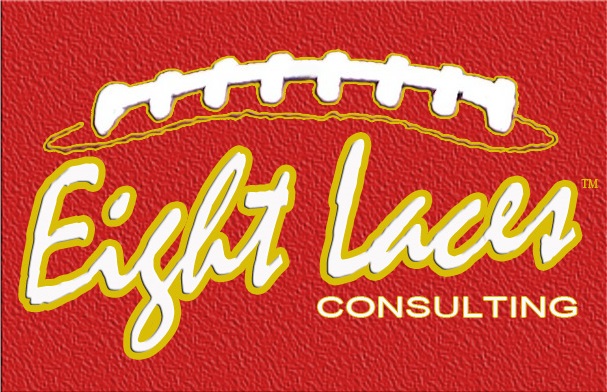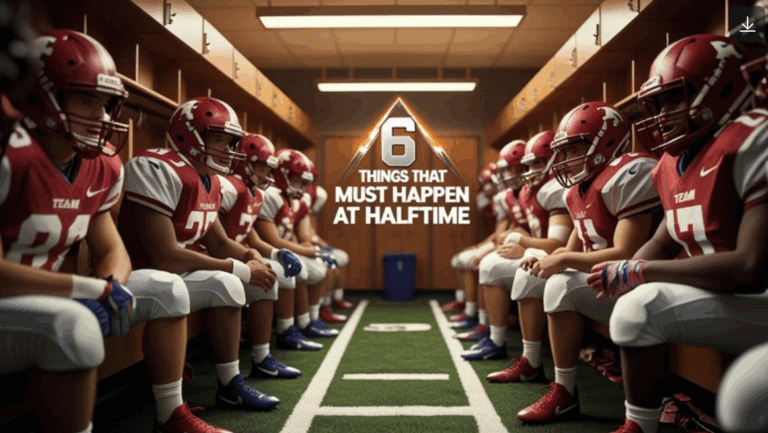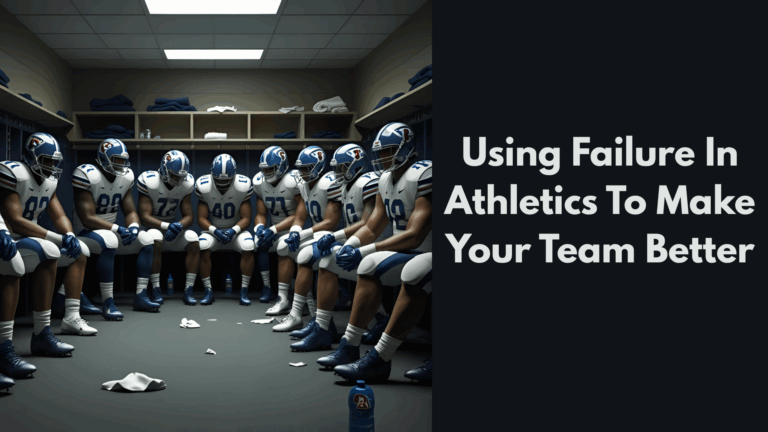
Sports Litigation Alert featured an article on my consulting business, Eight Laces Consulting, as well as my experience as an expert witness. Check it out!
Entrepreneur Builds Out a Niche Representing High School Coaches and Serving as an Expert Witness
The mission of the company Eight Laces is simple — “To prepare coaches to be hired for the job of their dreams, and to provide coaches and athletic directors with dynamite resources to become even more successful in their fields.”
But to stop there in describing what Chris Fore has done in building his business would miss the point. Fore is much more than that, writing books as well as operating an expert witness practice. What follows is an interview with the California entrepreneur.
Question: Eight Laces does seem like it has a pretty unique niche. How did you get into this business?
Fore: It is a niche consulting business on one hand, but on the other hand, we do service any coach at any level of sport — from junior high up to NCAA Division 1. With 70 percent of our business is from high school coaches. I fell in to this business when I had to create a resume for the first time ever at the age of 35. Before that, I had always been sought out. Or, my resume and portfolio didn’t really matter. In today’s highly competitive world of athletics, you better stand out with your application for a new job, or you will not get noticed. We help coaches get noticed by creating specialized athletic coaching resumes.
Q: What are the limits on your practice? Do you represent clients in other states? Do you represent coaches seeking jobs at small schools?
Fore: We represent clients all over the United States, and even about a dozen coaches who are overseas coaching, but looking to get back to the United States. Or clients who are looking to get to the US for the first time. There really are no limits. We have represented just about every “type” of coach you can think of: from the junior high volunteer football coach to the NCAA Division 1 Head Basketball and everything in between. Most of our business comes from the world of high school football. Second is college football.
Q: How does the negotiation process typically work?
Fore: Typically, the negotiation process will start with an offer of an employment to our candidate, along with a compensation package. That is made up of salary and benefits. Usually, my clients have a figure in their head, which they believe the market demands for their services. We will also help clients develop that figure. The next step is negotiating with the school. For instance, a high school baseball coach we represented wanted to teach less PE classes, and have more time for baseball. So, we negotiated that with the Superintendent. These are difficult discussions to have sometimes, that is why it is good to use a consultant. It’s a positive thing for both the school and the new employee. We also created a compensation plan with bonuses for playoff wins, something unique for the high school setting.
Q: Who is involved in the school district side in the negotiation process?
Fore: Most times it is the Superintendent, or the Chief Operating Officer, the person who controls the purse strings. Sometimes the negotiation will start with the Athletic Director or Principal, and then move on from there after the first round.
Q: What trends are you seeing in terms on the contracts being offered your clients?
Fore: More than anything, coaching contracts now are just not what they were 10-15 years ago. One thing that has really changed is the length of the contracts, they aren’t as long as they were before. The other thing is that schools usually want a way out, even after one year. So, schools have become creative with the buyout clauses in the coaching world.
Q: Who has been the biggest influence in your career?
Fore: Quite honestly, and I’ve never answered this question before, it would be my kids! I coached for about 8 years before having any kids. And about 13 years before my kids really started playing any type of sports. Once my kids started playing sports, I really started evaluating how I was coaching, and treating my student-athletes. Becoming a dad really impacted my relationships with my players in a positive way.
Q: Tell me about your experience as an expert witness?
Fore: I have been involved in some highly-publicized concussion cases here in Southern California. My experiences as an expert witness have involved cases regarding injuries, and the policies/protocols which the coach and or school had in place. I’ve also been called upon regarding California Interscholastic Federation policies regarding eligibility of student-athletes.
Q: What do you like most about it?
Fore: I really enjoy being an expert witness. I really enjoying meeting with the attorneys, and reading as much about the case as I can. Taking notes on the depositions, studying exactly what happened, and forming my opinion on the matter is what I like the most about the process. I enjoy being able to help counsel understand what the policies and practices of high school athletics specifically, and how those impact their client.
Q: What are the keys to being successful at it?
Fore: I would say first and foremost it is staying on the cutting edge of what is happening in the athletic administration and coaching world. That is key to building trust and confidence in what you are making an informed opinion about. For instance, a football coach who won a whole bunch of state championships, but retired before coaches ever had to earn a concussion certification probably won’t make a very credible expert witness. Another key to being a successful expert witness is being able to decipher through everything surrounding the case, all the different depositions, all the facts surrounding the case, and simply focusing on what you have been called to form an opinion on, nothing else. That focus is absolutely key to providing your clients with tremendous service.


